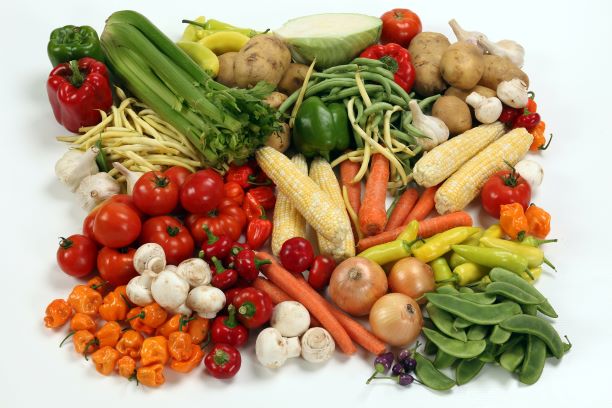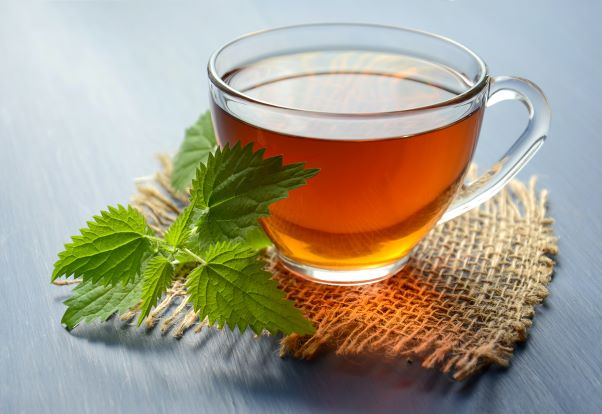Why you should eat Alkaline foods?

Did you ever feel that your stomach got upset right after a meal? Or, you might have experienced a bad day because of your consumption of certain foods. Well, you might keep on thinking ‘what went wrong?’, but the answer lies in certain foods which might hold the key to your good health. Yes it’s actually about certain foods – acidic or alkaline – which can promote or hinder your sound health. Interested to know more? Read on to know which are these foods or precisely alkaline fruits and vegetables, and why you should eat Alkaline foods?
Yes, food is the essence of our healthy life. If you seek advice of your doctor or dietician, you will come to know that a proper diet and healthy lifestyle are the key to stay healthy. Rapid globalization has tremendously changed our food habits and often can be blamed for unhealthy lifestyle, and these can actually play havoc on our health.
Due to our changed food style, sometimes we tend to consume huge volumes of certain foods like French fries, burger, pizza and samosa, which might be acidic in nature, can actually be a reason of bad health. These foods when digested leaves behind residues that are termed as acid waste, which is why the acidic level in the body goes haywire and it can lead to acidity, acid refluxes and other tummy troubles.
So what is the counter?
Well, the counter lies in some foods which can actually balance the acidity in our body. The foods which can counter are alkaline foods which help our body strike a balance and hence promote good health. So what is alkaline food?
What is alkaline diet?
To understand alkaline food, first we have to understand pH value. To put it in a simple way in the context of our diet, pH is a measurement of how acidic or alkaline our food is. The pH ranges from 0–14.
If the pH ranges from 0.0–6.9, it is acidic.
If the pH is 7.0, it is Neutral.
And, if the pH ranges from 7.1–14.0, it is Alkaline.
Our diet can actually change the pH value, which is the measurement of acidity or alkalinity, of our body. When we consume something our body breaks that food down into smaller units to convert it into energy. Due to this process of breaking down, certain chemical reactions occur in our body. As a result, the food that we eat leaves metabolic waste. This metabolic waste, depending on the food that we ate, can be alkaline, neutral, or acidic. This metabolic waste directly impacts the acidity of our body.
If the metabolic waste, because of the food that we eat, is acidic, it makes our blood more acidic. If the food leaves alkaline waste, it makes our blood more alkaline. As per this, acidic waste is believed to make our body vulnerable to illness and diseases, whereas alkaline waste is considered to be good for our body as it protects us.
Benefits of alkaline foods
Alkaline foods are essential because it brings about a balance in our body. Experts have the opinion that we should have a balanced diet with a good mix of everything and we should restrain from having only a certain category of food items. Alkaline foods therefore help in countering the risks of acidity and acid refluxes and hence have the ability to bring some sort of relief. So, alkaline foods are extremely important in maintaining pH balance in the body. Hence, experts stress on having a balanced meal and warn us against restricting ourselves to specific food items only.
By going for more alkaline foods, we can actually improve our health. Certain food components which leave acidic waste include protein, phosphate, and sulfur, while alkaline components include calcium, magnesium, and potassium. Certain fruits, nuts, legumes, and vegetables are alkaline in nature, so it is important to go more for these food items.
Again certain food items like meat, poultry, fish, dairy, eggs, grains and alcohol are acidic in nature, so it is better to avoid these foods.
Best Alkaline Foods List for Daily Diet
If you are consuming more amount of red meat, processed and junk food, so it’s right time that you start including some alkaline food too in your diet, which will help your body strike a balance. Here’s what which can be included –
- Leafy Vegetables
Most green leafy vegetables are believed to be alkaline in nature. So, it is very important to include these vegetables in our daily diet. They contain important minerals which are helpful for our body for numerous body functions. Go for these greens by including spinach, lettuce, kale, celery, parsley and mustard greens in your daily diet.
- Citrus Fruits
Although it is believed that citrus fruits are highly acidic but actually they are good source of alkaline foods. Lemon, lime and oranges are rich in Vitamin C and help our body in detoxification. Also, these alkaline fruits provide relief from acidity and heart burn.
- Root Vegetables
Certain root vegetables like sweet potato, beets and carrots are alkaline in nature. But if we overcook them, they lose out all their goodness. So attention should be paid while cooking. Also it’s better to include these alkaline vegetables in soups and salads.
- Onion, Garlic and Ginger
The amazing flavour enhancers in our cuisine like onion, garlic and ginger can actually be great to keep your body healthy.
Apart from tasting ‘so good’, mushrooms increase pH and promote alkalinity. Apart from this, mushrooms are rich in certain nutrients which make it very important to include them.
- Tomatoes:
Tomatoes are also alkaline and hence promote alkalinity in our body. Also, tomatoes are good source of B complex vitamins and lycopene.
- Ripe Bananas
Ripe bananas contain potassium and other important nutrients for the body. They are alkaline in nature and help a lot if we consume on a regular basis.
A 360-degree overview:
Now that you know about alkaline foods and its wonderful benefits to keep you healthy, the choice is yours to use a variety combination of foods so that your body can thwart diseases because of your changed lifestyle and diet.
(The content of this article is for informational purpose only. It cannot be a substitute for advice from a medical practitioner. Read DISCLAIMER for more…)








